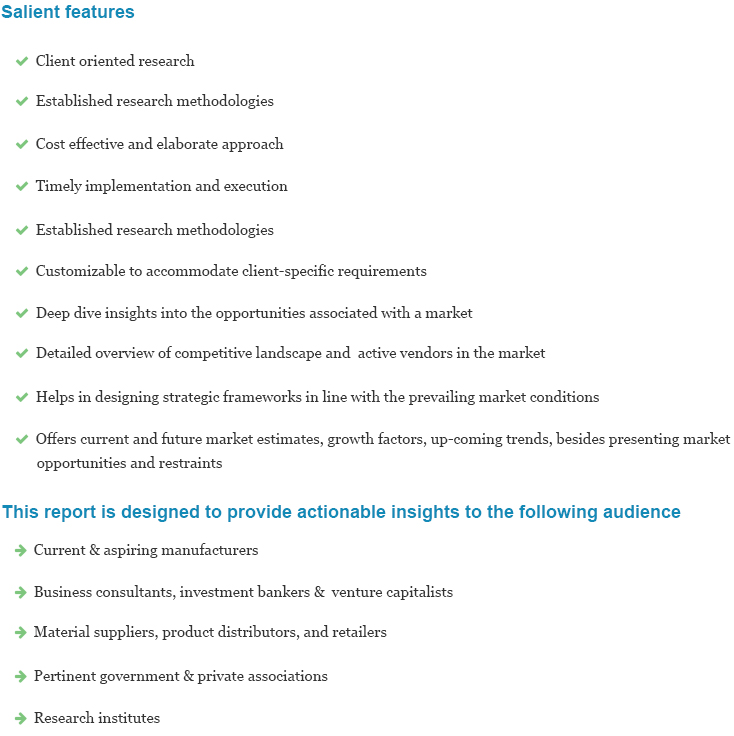
Knowledge Management Market Analysis, Market Size, Application Analysis, Regional Outlook, Competitive Strategies And Forecasts, 2015 To 2025
- Published: January, 2019
- Format: Electronic (PDF)
- Number of pages: 70
- Industry: Technology
The global knowledge management (KM) market is expected to witness remarkable growth in the coming years owing to increasing need for customer satisfaction and retention. Competition among players has increased due to growing importance of customer satisfaction as a crucial business strategy, which is mainly dependent on quality of services offered by players. The solution is mainly based on knowledge creation, retention, and sharing. Companies are extensively adopting the KM solutions for data sharing across the organization for better decision making. In addition, different responsive design techniques are being used to deliver content to different channels, which is expected to drive the market in future. For instance, Bloomfire, a knowledge sharing company, introduced their newest integration, a Slack app, to improve their knowledge sharing technology platform. Company’s new offering improves the way employees share knowledge by offering instant notifications of new content directly in a team’s Slack channel.
Moreover, the KM software is based on cloud computing model, which gathers and stores information on the servers. The data can be accessed anytime through internet. It provides consistent quality response and reduces training and call handling time. The cloud platform collects information efficiently along with content management capabilities to gather information from various sources. Integration of artificial intelligence (AI) into these solutions is also likely to boost the market growth. For instance, Guru, a management knowledge management solution, launched Guru AI Suggest Voice, a real-time voice-to-knowledge solution. The solution converts speech to text by listening phone or teleconference conversation to search related knowledge and improve the support agent’s efficiency in real-time.
Technological developments and introduction of new solutions are anticipated to have a positive impact on the working models of organizations. Small and medium businesses are likely to grow significantly in the coming years. Rapid industrialization, rising competition, and changing organizational structures are fuelling demand for better knowledge management software among organisations. Increasing usage of these solutions in applications, such as internet banking, ATM, and new payment mode, such as cryptocurrency, is estimated to boost the market growth in the coming years. In addition, rising trading activities in the stock market and increasing usage of virtual currencies can stimulate the market growth in the years to come. However, lack of awareness and acceptance of these solutions among small organizations can restrain the market growth.
Various types of services offered in the market are infrastructure, systems, process, and mechanisms and technologies. Process holds a prominent share in the market as it aids in understanding work flow of company. In addition, growing need for training the employees and offering quality service to clients is likely to boost its growth in coming years.
North America is a leading region in the market due to high demand for the software in sectors, such as pharmaceuticals, BFSI, and government. Europe is expected to witness remarkable growth in the coming years. Asia Pacific is likely to emerge highly lucrative owing to expansion of capabilities by companies to provide better service to customers. Countries, such as South Korea, India, China, Japan, Australia, and Singapore, are significantly contributing to the regional growth.
Some of the leading companies operating in the knowledge management market are Open Text Corporation, IBM Global Services, EduBrite Systems, Chadha Software Technologies, and Callidus Software Inc. Key players are adopting various strategies, such as mergers and acquisitions, in order to withstand intense competition. For instance, Lucidea, a leading provider of library automation and knowledge management solutions, acquired Eloquent Systems, an applications developer company that offers mobile-friendly KM software. The software is beneficial for professionals who manage libraries, archives, museums, and records. Moreover, it helps in organizing information related to physical and digital assets.

Choose License Type
- World's largest premium report database
- Transparent pre & post sale customer engagement model
- Unparalleled flexibility in terms of rendering services
- Safe & secure web experience
- 24*5 Research support service
